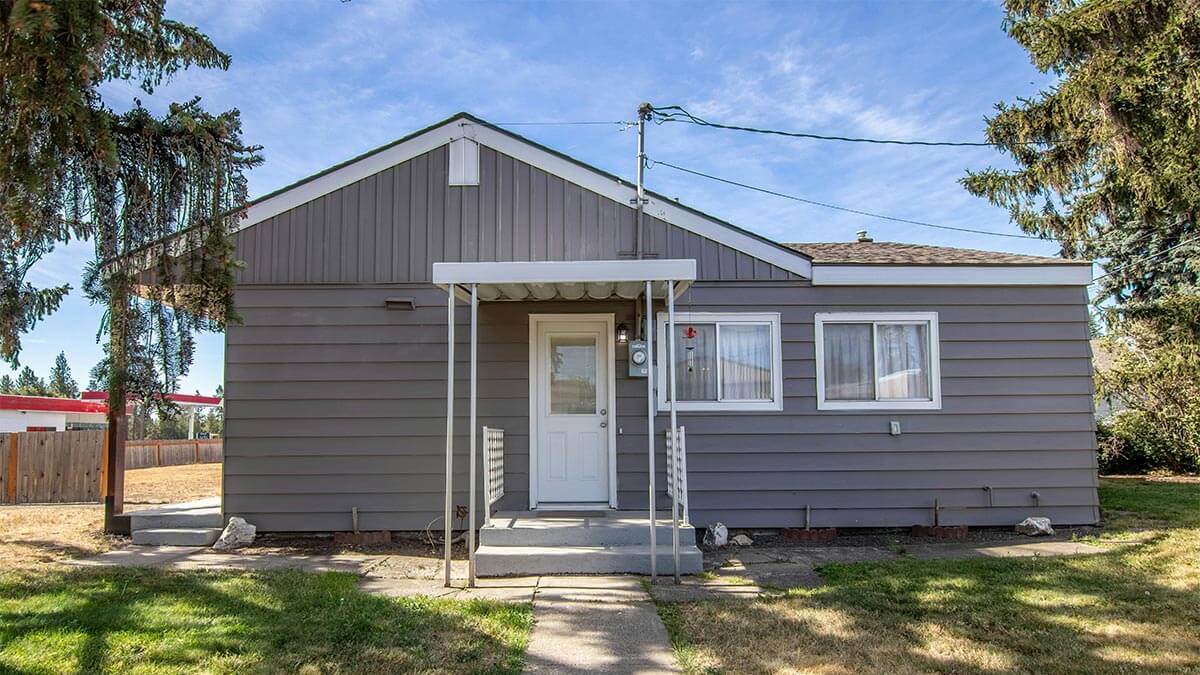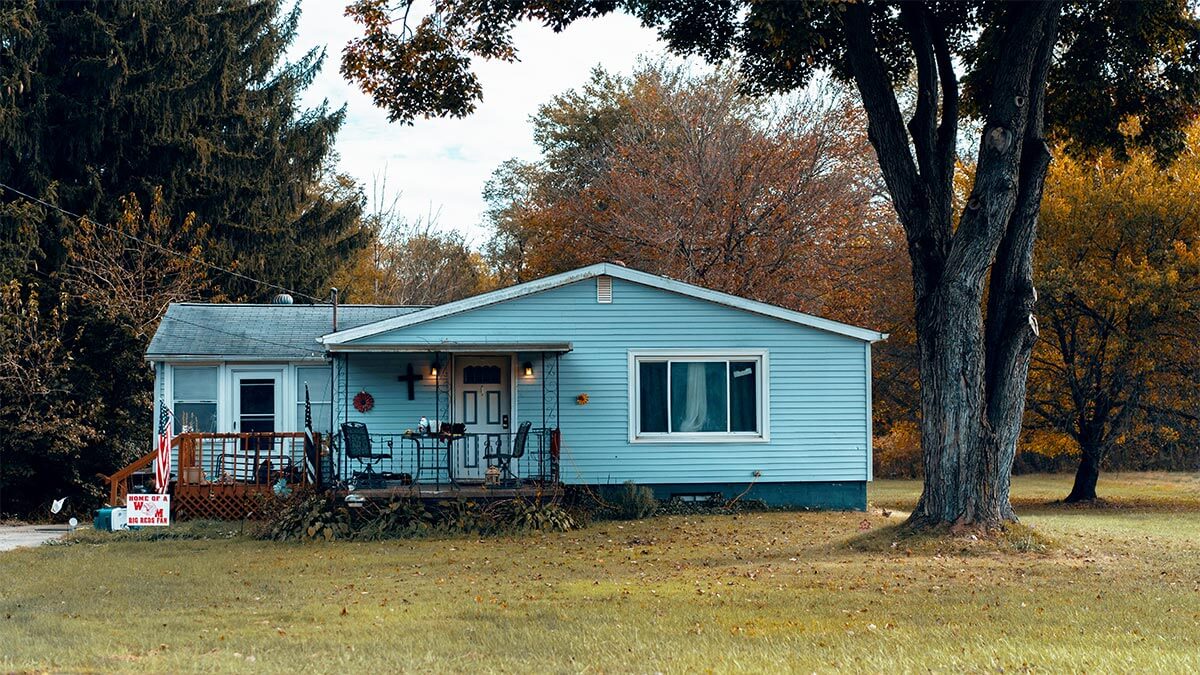Inheriting a house can feel like a blessing and a burden all at once. One moment you’re thinking about the memories inside those walls. The next, you’re wondering what to do with this big, unexpected responsibility.
If you’re feeling overwhelmed, you’re not alone. Selling an inherited house can be tricky. There’s legal stuff, taxes, and sometimes family decisions to juggle. But don’t worry—we’ll break it all down, step by step.
In this guide, you’ll learn how to navigate the probate process, understand taxes like capital gains, and decide the best way to sell your inherited home. Whether you’re ready to move fast or just need to know your options, we’ve got you covered.
Want to skip the hard parts? Get an instant cash offer from iBuyer.com and make selling simple.
Instant Valuation, Confidential Deals with a Certified iBuyer.com Specialist.
Sell Smart, Sell Fast, Get Sold. No Obligations.
Table of contents
- The Probate Process and Legal Steps
- Ownership Scenarios: Sole Ownership vs. Co-Ownership
- Assessing the Market Value and Sales Price
- Tax Implications: Capital Gains Taxes and More
- Selling Options: Cash Buyer, As-Is Sale, or Renovate and List
- Reilly’s Two Cents: Personal Insights on Selling an Inherited Home
- Make the Right Move for Your Inherited Property
- FAQs About Selling an Inherited House
The Probate Process and Legal Steps
When someone passes away and leaves a house behind, that property doesn’t just transfer hands right away. It usually goes through probate—a legal process that makes sure debts get paid and the home is passed to the right people.
What is probate and when does it apply to inherited properties?
Probate happens when a court steps in to handle the person’s estate. If there’s a will, the court follows it. If there’s no will, the court decides who gets what based on state laws. If you’ve inherited a house, chances are it’ll go through probate unless it was set up in a trust or joint ownership.
When can you sell an inherited house during probate?
Sometimes you can sell the house while it’s still in probate, but you’ll need the court’s okay. This can slow things down, but it also makes sure everything is handled the right way. Once probate wraps up, selling gets a lot easier.
Do you need a real estate attorney?
Having a real estate attorney can be a lifesaver here. They know how to handle the legal steps, explain your rights, and make sure nothing falls through the cracks. It’s not required everywhere, but it can save you headaches, especially if the estate is complicated.
Ownership Scenarios: Sole Ownership vs. Co-Ownership
Not all inherited houses come with a clean, easy title. Sometimes it’s just you, and other times, it’s you and your siblings, cousins, or even distant relatives. How you handle selling depends a lot on who owns what.
Selling a home as the sole heir
If you’re the only person inheriting the house, things are pretty straightforward. Once probate is done (or if the house skips probate), you can decide to sell the home, rent it out, or keep it.
Handling co-ownership with family members
If you co-own the property with others—like siblings—you’ll all need to agree on what happens next. Do you sell? Does one person buy out the others? This can get tricky, especially if emotions are running high.
Here’s where estate planning comes into play. Having open conversations and maybe even bringing in a mediator can help keep things smooth. Everyone should feel heard before making a big decision like selling.
Assessing the Market Value and Sales Price
Before you can sell an inherited house, you need to know what it’s worth. But it’s not just about guessing or checking a few online listings. Getting the market value at the time you inherited the property is key.
How to determine the market value at the time of inheritance
Usually, you’ll need a professional appraisal. This gives you the home’s value based on when the person passed away, not today’s price. This number matters for taxes later (we’ll get to that soon). Even if the market shifts, that original value—called the stepped-up basis—is your starting point.
The role of a real estate agent in pricing inherited property
A good real estate agent knows how to price an inherited home right. They’ll compare your house to others in the area, factor in any repairs needed, and help set a sales price that attracts buyers without shortchanging you. Even if you’re thinking about selling fast, knowing the home’s value helps you make smart decisions.
Tax Implications: Capital Gains Taxes and More
Nobody likes surprises when it comes to taxes, and selling an inherited house can bring a few. But don’t worry—I’ll keep it simple.
Do you pay capital gains tax on inherited property?
The short answer? Maybe. Capital gains taxes kick in if you sell the house for more than its market value at the time you inherited it. But thanks to something called a stepped-up basis, you’re only taxed on the difference between that inherited value and your sales price—not the original price your loved one paid years ago.
Impact of stepped-up basis on your tax burden
This stepped-up basis is a good thing. It can lower how much tax you owe because it resets the home’s value closer to today’s market. So if you sell the house right away, there may be little to no capital gains tax. But if you hold onto it and the value goes up, that’s when you might owe.
Other taxes to consider: property taxes and closing costs
Besides capital gains, there are other expenses like property taxes (which you might owe during the time you own the home) and closing costs when you sell. These can include agent fees, title fees, and other stuff that sneaks up on you if you’re not prepared.
Selling Options: Cash Buyer, As-Is Sale, or Renovate and List
When it’s time to sell, you’ve got choices. Some are faster, some might get you more money. It all depends on how much time, energy, and cash you want to put in.
Selling an inherited home as-is
Selling as-is means you skip the repairs and let the buyer handle any updates. This is quick and easy but usually means a lower sales price. For some folks, skipping the hassle is worth it, especially if the house needs a lot of work.
Should you renovate before selling inherited property?
Fixing up the place can boost the price, but it also costs time and money. If the home just needs a little TLC—like fresh paint or landscaping—it might be worth it. But big remodels? They don’t always pay off.
Visual tip: A before-and-after table or image showing small fixes vs. full renovations could help readers decide here.
Selling to a cash buyer: Is it the right move?
Cash buyers make the process fast and simple. No showings, no waiting on loan approvals. It’s not always the highest offer, but it’s usually the easiest. If you’re looking for speed and less stress, this could be the way to go.
Reilly’s Two Cents: Personal Insights on Selling an Inherited Home
I’ve helped plenty of folks navigate the ups and downs of selling a home, and let me tell you—selling an inherited house is a different kind of journey. It’s not just about dollars and paperwork. There’s often a lot of emotion tied to these places, and that makes every decision feel heavier.
When I’ve worked with families going through this, I’ve seen how important it is to slow down and communicate. Everyone has their own memories and feelings wrapped up in the house, and selling it can bring all of that to the surface. Taking a little time to talk things through with your co-owners—whether that’s siblings, cousins, or anyone else—can make the process smoother for everyone.
Here are a few tips I always share:
- Tip 1: Get a couple of appraisals. It’s good to have a solid sense of the home’s value, and different appraisers might see things a bit differently. This helps set clear expectations.
- Tip 2: Think about what your time is worth. Fixing up a house can sometimes feel like the right move, but if you’re busy or just emotionally done with the process, selling as-is or to a cash buyer might be the better choice.
- Tip 3: Don’t forget to take care of yourself. Selling a family home is never just a transaction—it’s a piece of your story. Give yourself some grace through the process.
Make the Right Move for Your Inherited Property
Selling an inherited house can feel like a lot, but taking it step by step makes the journey easier. First, understand the probate process and any legal steps. Then, figure out your tax situation—especially capital gains taxes and property taxes. Finally, decide how you want to sell: fix it up, sell it as-is, or go with a cash buyer.
Every situation is different, and there’s no one-size-fits-all answer. The most important thing? Make a choice that works for you and your family.
Want to keep things simple? Get an instant cash offer from iBuyer.com and move on your terms—no showings, no surprises.
Compare Cash Offers from Top Home Buyers. Delivered by Your Local iBuyer Certified Specialist.
One Expert, Multiple Offers, No Obligation.
FAQs About Selling an Inherited House
Maybe not. Thanks to the stepped-up basis, the home’s value resets to what it was worth when you inherited it. If you sell it right away and the sales price is close to that value, you likely won’t owe much—or anything—in capital gains taxes.
Yes, you can. But it can get tricky. If your co-owners aren’t ready to sell, you might need to negotiate or work with a real estate attorney to figure out the best move.
The best way is to get a professional appraisal. This gives you the market value at the time of inheritance, which helps with both taxes and setting a sales price.
Pretty fast! Some cash buyers can close in as little as 7 to 14 days, depending on the situation. No waiting for loan approvals, no long negotiations.
Reilly Dzurick is a seasoned real estate agent at Get Land Florida, bringing over six years of industry experience to the vibrant Vero Beach market. She is known for her deep understanding of local real estate trends and her dedication to helping clients find their dream properties. Reilly’s journey in real estate is complemented by her academic background in Public Relations, Advertising, and Applied Communication from the University of North Florida.




